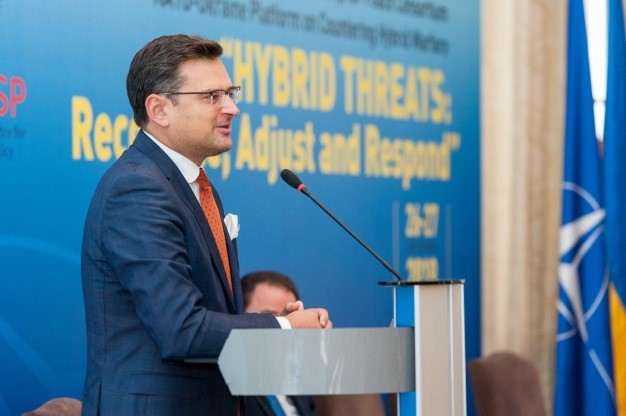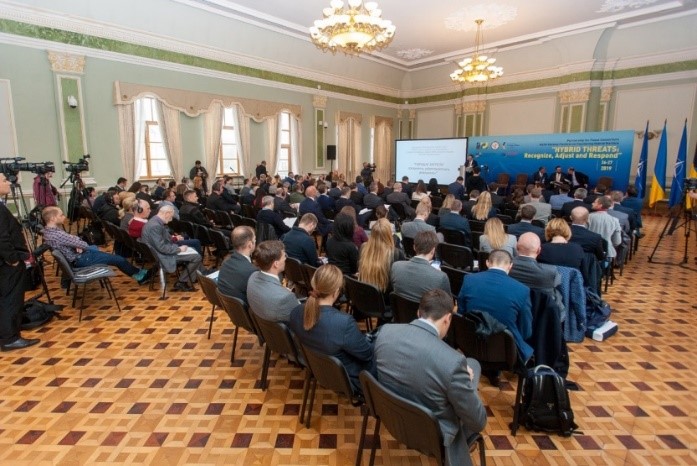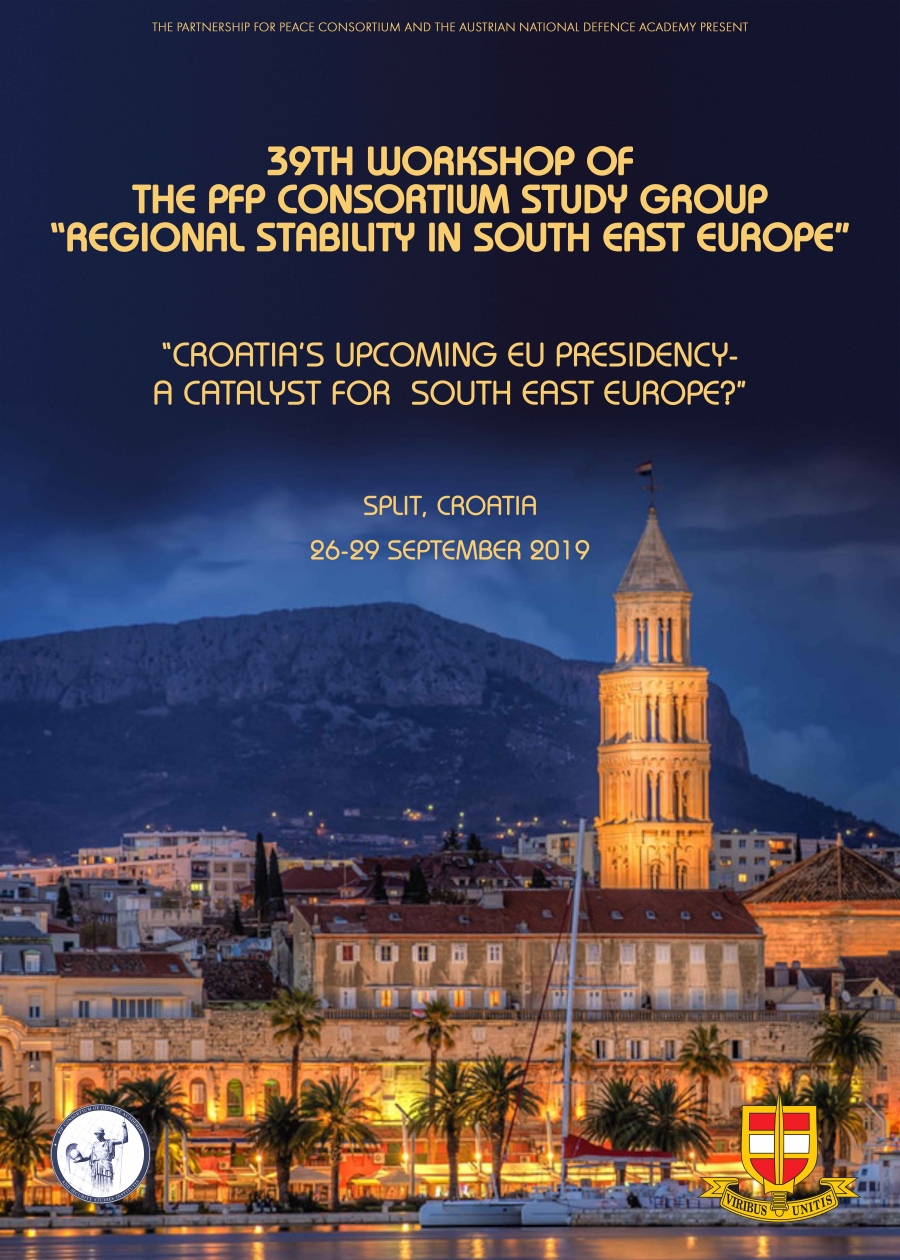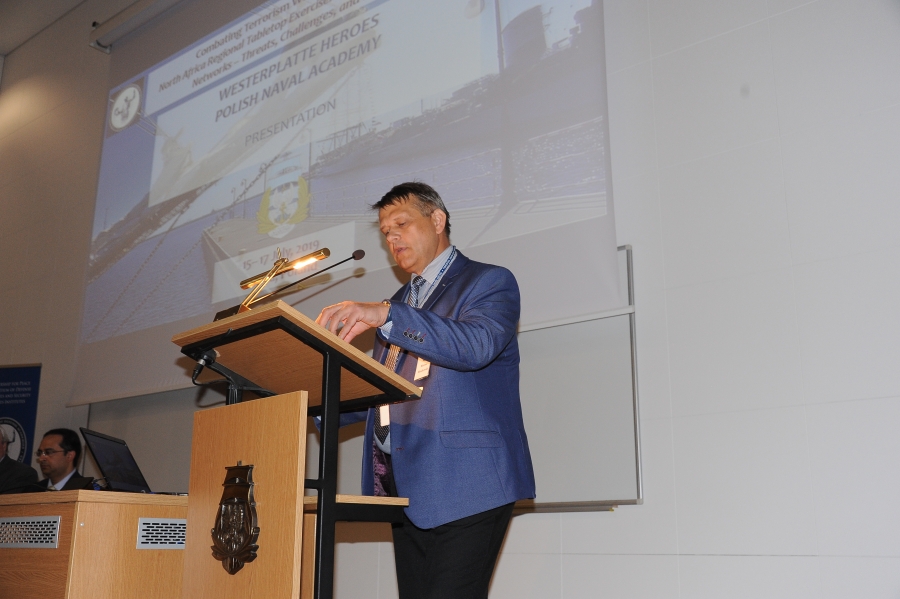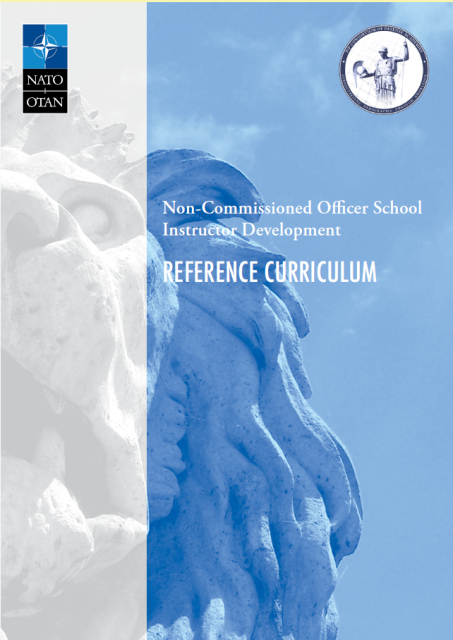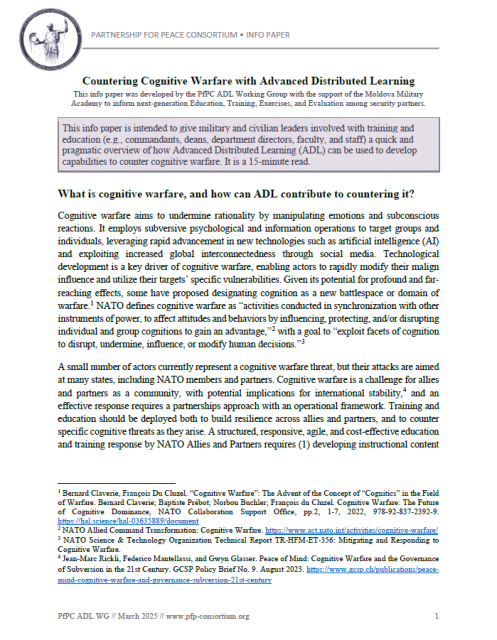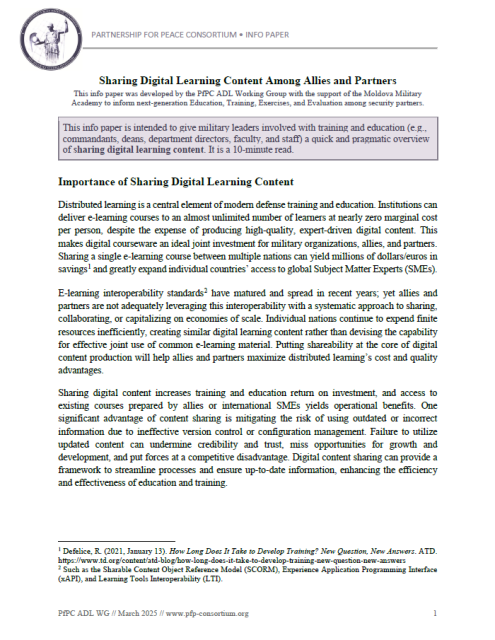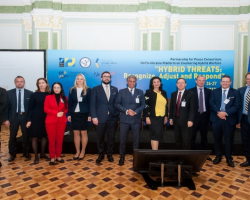
Kyiv, Ukraine, September 26-27, 2019 - The Partnership for Peace Consortium’s (PfPC) Emerging Security Challenges Working Group, in cooperation with the NATO-Ukraine Platform on Countering Hybrid Warfare, the Ukrainian Government Office for Coordination of European and Euro-Atlantic Integration, the Ministry of Foreign Affairs of Ukraine, NATO, and the Geneva Centre for Security Policy co-organized a conference entitled, “Hybrid Threats: Recognize, Adjust and Respond.”
The Co-Chairs of the PfPC Emerging Security Challenges Working Group, Mr. Michael Gaul and Dr. Jean-Marc Rickli, welcomed the participants and outlined the importance of addressing hybrid threats in cooperation with Ukraine. Michael Gaul also reminded the audience of the PfPC´s longstanding cooperation with Ukraine and the ongoing work by the Working Group, including the development of a Hybrid Threat Curriculum. He reiterated that deterring hybrid threats requires close cooperation between Allies, Partners, and international organizations. Jean-Marc Rickli reminded the audience about the evolving nature of hybrid threats, which increasingly translate into surrogate warfare, and therefore, the need to better understand the role of emerging technology in future conflicts.
Mr. Alexander Vinnikov, the Head of the NATO Representation and Director of the NATO Liaison Office in Ukraine, emphasized the strong support the Alliance is providing to Ukraine. He said, "the NATO-Ukraine Platform on Countering Hybrid Warfare has an outstanding potential as a tool for knowledge-sharing to provide policy makers with practical recommendations and advice on how to respond to hybrid threats… no state, organization or alliance can counter hybrid threats effectively only on its own - therefore international cooperation is vital."
Mr. Yehor Bozhok, Deputy Minister of Foreign Affairs of Ukraine, provided a new perspective on Hybrid threats in Ukraine and presented the term “Hybration,” a combination of “hybrid” and “conventional,” to describe the difficulty to place the blurred line between these two conflict methods. He also underscored that “no state can achieve their goals on their own, without contribution and advice.”
Mr. Dmytro Kuleba, Deputy Prime Minister for European and Euro-Atlantic Integration of Ukraine, described hybrid warfare as a military strategy that employs a wide range of means, from conventional, to irregular warfare, arguing that “we may call it as we want, but it is still warfare.” Moreover, Mr. Kuleba mentioned that a system of resilience must be built in Ukraine, which can flexibly adapt to reality and that this should be jointly built with partners from NATO.
Ms. Ivanna Klympush-Tsintsadze, MP, Chair, Ukrainian Parliament Committee on Integration to the EU, highlighted that the biggest difficulty within hybrid attacks is enemy identification, because the enemies can be countries as well as non-governmental institutions. She added, “when we have silence at the frontline, less fire shooting and fewer casualties, we see very often an aggravation on the other fronts of hybrid warfare.”
Major General Timothy Bevis, Director Operations and Planning, NATO International Military Staff in Brussels, presented in his keynote speech the tools to increase awareness and indicators of warning, emphasizing that training and exercises should be implemented on policy-making and military levels. He argued that “even non-state civilians and commercial businesses need to put emphasis on the right aspects in order to mitigate threats.”
Experts provided detailed analysis of current and prospective hybrid threats across different regions and domains, in order to understand and determine means to recognize, adjust, and respond to such threats. The speakers presented optimal aids to resist full-scope hybrid threats. Resilience to the threat is not only achieved through a better institutional structure, but also through strengthening and building communities that protect democracy, the rule of law, and public safety.
In his concluding remarks, Mr. Oleksiy Genchev, Head, NATO Department, Government Office for European and Euro-Atlantic Integration, expressed his gratitude for the event: “Though the conference is over, our mission is not accomplished or finished. We will continue our cooperation and I can assure that many recommendations will find their implementation in everyday activities.”
Regarding the way forward, Mr. Gaul stated that “education and training are the key to better address hybrid threats – this lesson encourages the PfP Consortium Emerging Security Challenges Working Group to develop a Hybrid Threat Curriculum as a priority.”
Main Photo: Opening of the ESC conference “Hybrid Threats: Recognize, Adjust and Respond.
